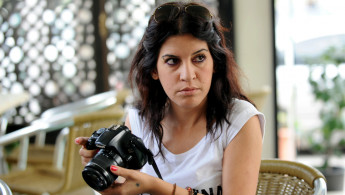Follow us on Twitter and Instagram to stay connected
Lina Ben Mhenni, award-winning blogger activist who tirelessly documented Tunisia's revolution, dies aged-36
Despite the risks, Ben Mhenni for years spoke out against the Ben Ali regime through her blog "Tunisian Girl".
She travelled to disadvantaged cities in the country's interior and used social media to broadcast some of the first expressions of anger against those in power.
After young street vendor Mohamed Bouazizi set himself alight to protest against police harassment on 17 December 2010, Ben Mhenni was the first blogger to go to Sidi Bouzid, the cradle of the revolution.
In English, French and Arabic, her chronicles of the uprising were the highlight of her engagement against the dictatorship.
Ben Mhenni had been touted as a Nobel Peace Prize frontrunner in 2011 for chronicling the protests that sparked the Arab Spring uprisings.
After the revolution, she continued to fight for human rights and freedoms, despite suffering from a chronic illness.
Tributes have poured in for the young human rights activist.
"After years of battles, both physically and mentally, Lina Ben Mhenni has left us," fellow activist Amira Yahyaoui wrote on Twitter. She "will be remembered as the most amazing citizen".
|
She will be buried on Tuesday.
In 2011, Ben Mhenni released a book titled "Tunisian Girl: A Blogger for an Arab Spring". She also taught English at a University in Tunis.
She took part in multiple demonstrations and trials on freedom of expression.
In her final months, Ben Mhenni had denounced the state of hospitals in the Tunisian capital.
Tunisia has been mired by protest for months, with calls for the political elite to be carved out of the country.
Earlier this year Tunisia parliament rejected the government of Habib Jemli’s proposed cabinet following months of political negotiations.
December saw the arrest of eleven Tunisians during a night of clashes between protesters and police in the central region of Sidi Bouzid after the self-immolation of a young man sparked outrage.
Clashes in Jelma started after the death last Friday of 25-year-old Abdelwahed Hablani who set himself on fire in the centre of the impoverished town in desperation over his economic woes.
Hablani had found occasional work as a casual labourer,





 Follow the Middle East's top stories in English at The New Arab on Google News
Follow the Middle East's top stories in English at The New Arab on Google News


